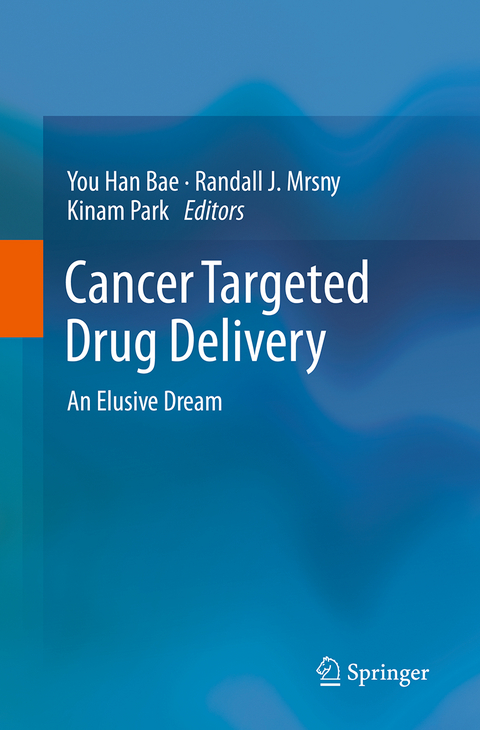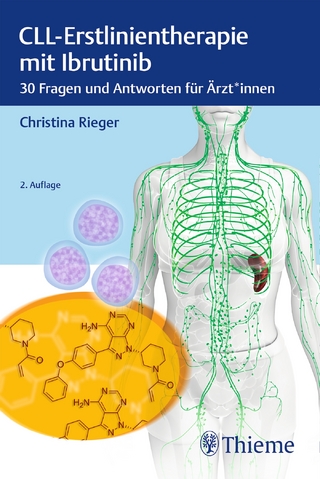
Cancer Targeted Drug Delivery
Springer-Verlag New York Inc.
978-1-4939-4514-6 (ISBN)
Professor You Han Bae Professor You Han Bae received his Ph.D. in 1988 from University of Utah. He has background of chemical engineering and polymer science/engineering and pharmaceutical chemistry. He served University of Utah as a postdoctoral fellow and research assistant/associate professor till 1994. He joined the Department of Materials Science and Engineering at Gwangju Institute of Science and Technology (GIST) in Korea in 1994 as an associate professor and promoted to a full Professor in 1998. After serving 7.5 years at GIST, he came back to the University of Utah as a full professor in 2002. He researched stimuli sensitive polymers and drug delivery, protein drug stabilization and controlled release, and functionalized polymers for glucose sensor and biohybrid artificial pancreas. His current research interests include nanoparticulates for multidrug resistance in cancer and tumor heterogeneity, novel carrier design for the delivery of genetic materials and preclinical cancer models. He is the author or co-author of over 240 peer-reviewed scientific papers, book chapters and U.S. Patents which have been cited more than 14,000 times. He is an editorial board member of Pharmaceutical Research and Bioconjugate, and is also currently serving the Journal of Controlled Release (JCR) as an America Associate Editor as well as the Editor of the Concept Paper in JCR. Professor Randall Mrsny Professor Randall Mrsny received his Ph.D. degree in Human Anatomy and Cell Biology from the University of California at Davis in 1981 where he was an NIH predoctoral fellow. He was awarded an NIH postdoctoral fellowship that he undertook at the Institute of Molecular Biology at the University of Oregon where he focused on research in Membrane Biophysics. Professor Mrsny thenjoined ALZA Corporation where he led the Peptide Biology Group and then moved to Genentech where he led the Drug Delivery / Biology group. In 2000 he left Genentech to start two separated biotech companies and take a part-time Professor of Drug Delivery post at Cardiff University. In 2009 he moved to the Department of Pharmacy and Pharmacology at the University of Bath where he now holds a full-time Professor of Epithelial Biology post. Professor Mrsny's research has focused primarily on understanding biological barriers of the body that limit or modulate the delivery of biopharmaceuticals using a multi-disciplinary approach. His current research includes the identification of vesicular trafficking pathways in epithelial hijacked cells that are by bacterial toxins, mechanism epithelial cells to regulate the transmigration of neutrophils, and protein-protein contacts involving tight junction elements that control paracellular permeability properties of epithelia. He has published more than 90 peer-reviewed papers, 25 book chapters and reviews, and presented more than 100 abstracts at national and international meetings. He co-authored and co-edited 5 books in the area of controlled drug delivery. He is the founder of Unity Pharmaceuticals and Applied Molecular Transport. Professor Kinam Park Professor Kinam Park received his Ph.D. degree in pharmaceutics from University of Wisconsin in 1983. After a postdoctoral training at the Department of Chemical Engineering of the same university, he joined the faculty of the Purdue University in 1986 and promoted to Full Professor of Pharmaceutics in 1994. Since 1998, he has held a joint appointment in Department of Biomedical Engineering, and became Showalter Distinguished Professor of Biomedical Engineering in 2006. His research has been focused on the use of various polymers and hydrogels for controlled drug delivery. His current research includes hydrogel template methods for fabrication of homogeneous microparticles for long-term drug delivery, hydrotropic polymeric micelles for increasing the water solubility of poorly soluble drugs, hydrogels for biomedical applications, and drug-eluting stents and balloons. He has published more than 230 peer-reviewed papers, 90 book chapters, 90 JCR cover stories, and presented 200 abstracts at national and international meetings. He co-authored and co-edited 11 books in the area of controlled drug delivery, and has trained more than 100 Ph.D. graduate students, postdoctoral fellows and visiting scientists. He is the founder of Akina, Inc. specializing in drug delivery technologies in 2001. He is currently the Editor-in-Chief of the Journal of Controlled Release.
A Time Travel Journey Through Cancer Therapies.- Nanotechnology for Cancer Treatment: Possibilities & Limitations.- Vascular Targeting Approaches to Treat Cancer.- Tumor Immunotherapy by Utilizing a Double-Edged Sword Chemokines.- Cancer Biology: Some Causes for a Variety of Different Diseases.- Cancer Stromal Targeting (CAST) Therapy and Tailored Antibody Drug Conjugate Therapy Depending on Nature of Tumor Stroma.- Cancer Cell Respiration: Hypoxia and pH in Solid Tumors.- Tumor Vasculature, EPR Effect, and Anticancer Nanomedicine: Connecting the Dots.- Pressure Gradients in Solid Tumors.- The ADAMs: New Therapeutic Targets for Cancer?.- Role of the Extracellular Matrix – Enzyme Activities and Metastasis.- The Role of Non-Cancerous Cells in Cancer: Pancreatic Ductal Adenocarcinoma as Model to Understand the Impact of Tumor Microenvironment on Epithelial Carcinogenesis.- Heterogeneity of Cancers and its Implication for Targeted Drug Delivery.- A Study of Cancer Heterogeneity: From Genetic Instability to Epigenetic Diversity in Colorectal Cancer.- Nanotherapeutics in Multidrug Resistance.- Stem Cells and Cancer.- Mechanisms of Metastasis.- Cancer-Specific Ligand/Receptor Interactions.- Targeting Drugs to Cancer: A Tough Journey to the Tumor Cell.- Long Circulation and Tumor Accumulation.- Convective and Diffusive Transport in Drug Delivery.- Intravital Real-Time Confocal Laser Scanning Microscopy for the in Situ Evaluation of Nanocarriers.- The EPR effect in Cancer Therapy.- In Vitro 3-dimensional Cancer Culture Model.- Complex Transport Around Tumor: Need for Realistic In Vitro Tumor Transport Model.- The Missing Components Today and the New Treatments Tomorrow.
| Erscheinungsdatum | 04.10.2016 |
|---|---|
| Zusatzinfo | 86 Illustrations, color; 31 Illustrations, black and white; XVII, 720 p. 117 illus., 86 illus. in color. |
| Verlagsort | New York |
| Sprache | englisch |
| Maße | 155 x 235 mm |
| Themenwelt | Medizin / Pharmazie ► Medizinische Fachgebiete ► Onkologie |
| Medizin / Pharmazie ► Medizinische Fachgebiete ► Pharmakologie / Pharmakotherapie | |
| Medizin / Pharmazie ► Pharmazie | |
| Naturwissenschaften ► Chemie ► Technische Chemie | |
| Technik | |
| Schlagworte | Cancer • Cancer cells • Cancer tharapy • Drug Delivery • Tumor • Tumor heterogeneity |
| ISBN-10 | 1-4939-4514-9 / 1493945149 |
| ISBN-13 | 978-1-4939-4514-6 / 9781493945146 |
| Zustand | Neuware |
| Informationen gemäß Produktsicherheitsverordnung (GPSR) | |
| Haben Sie eine Frage zum Produkt? |
aus dem Bereich


